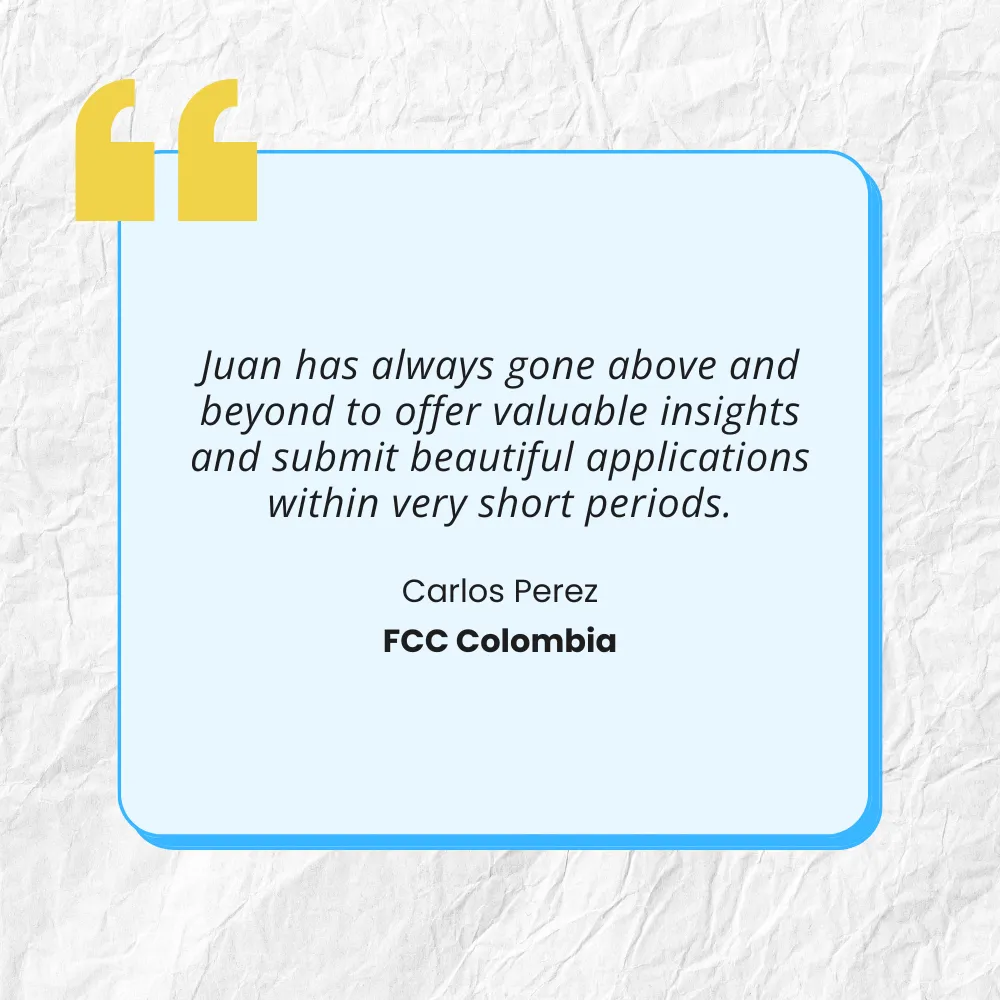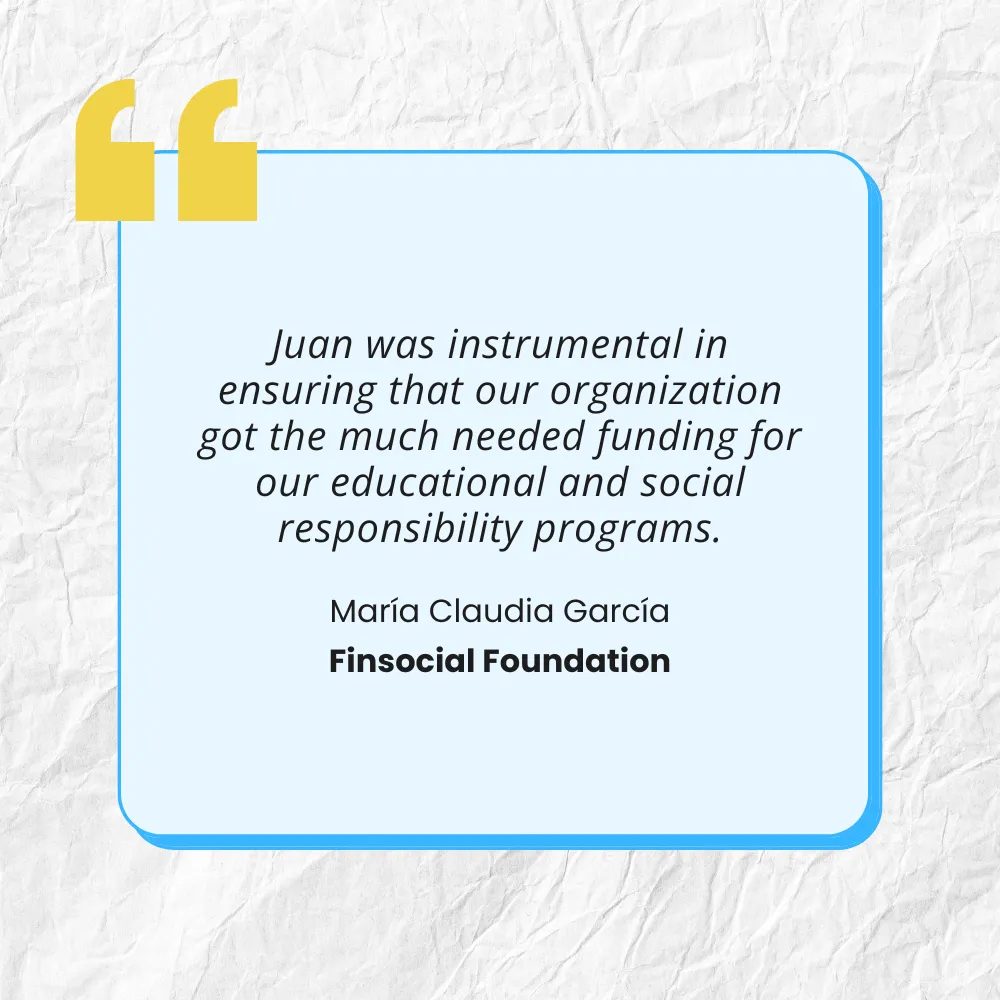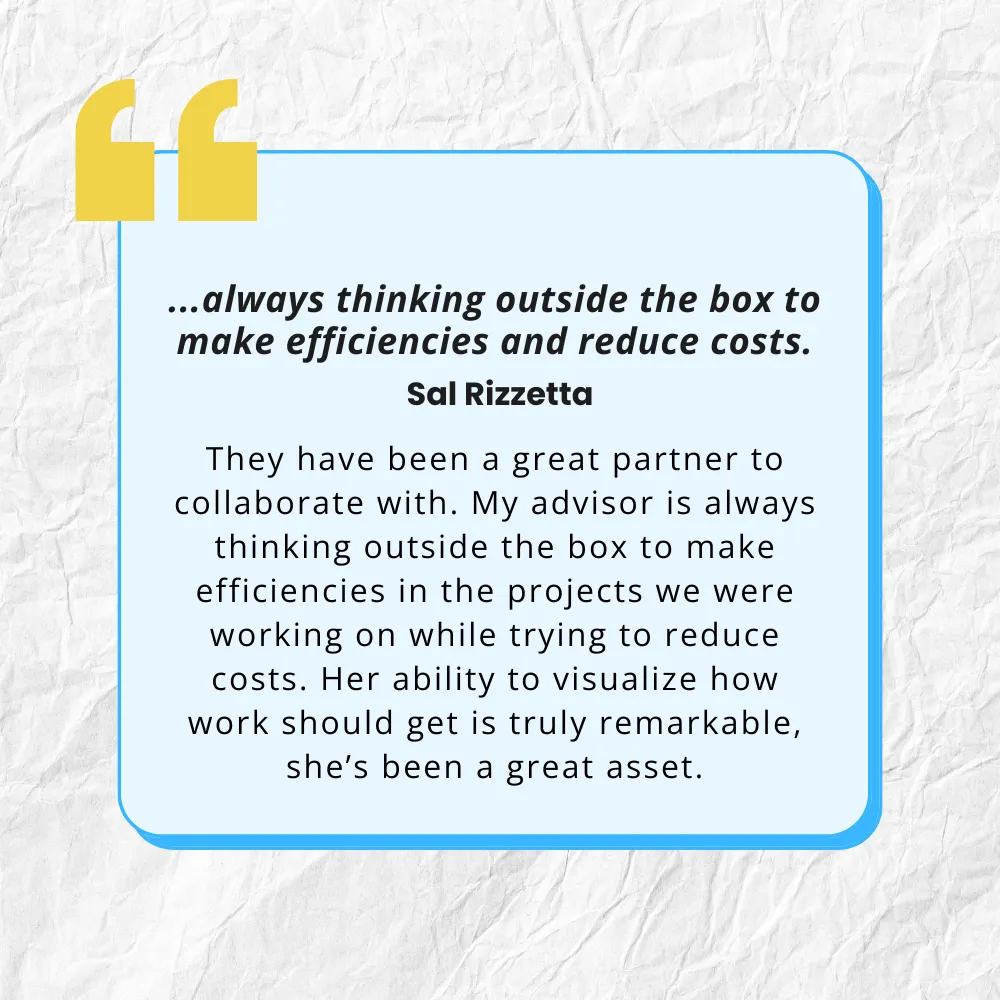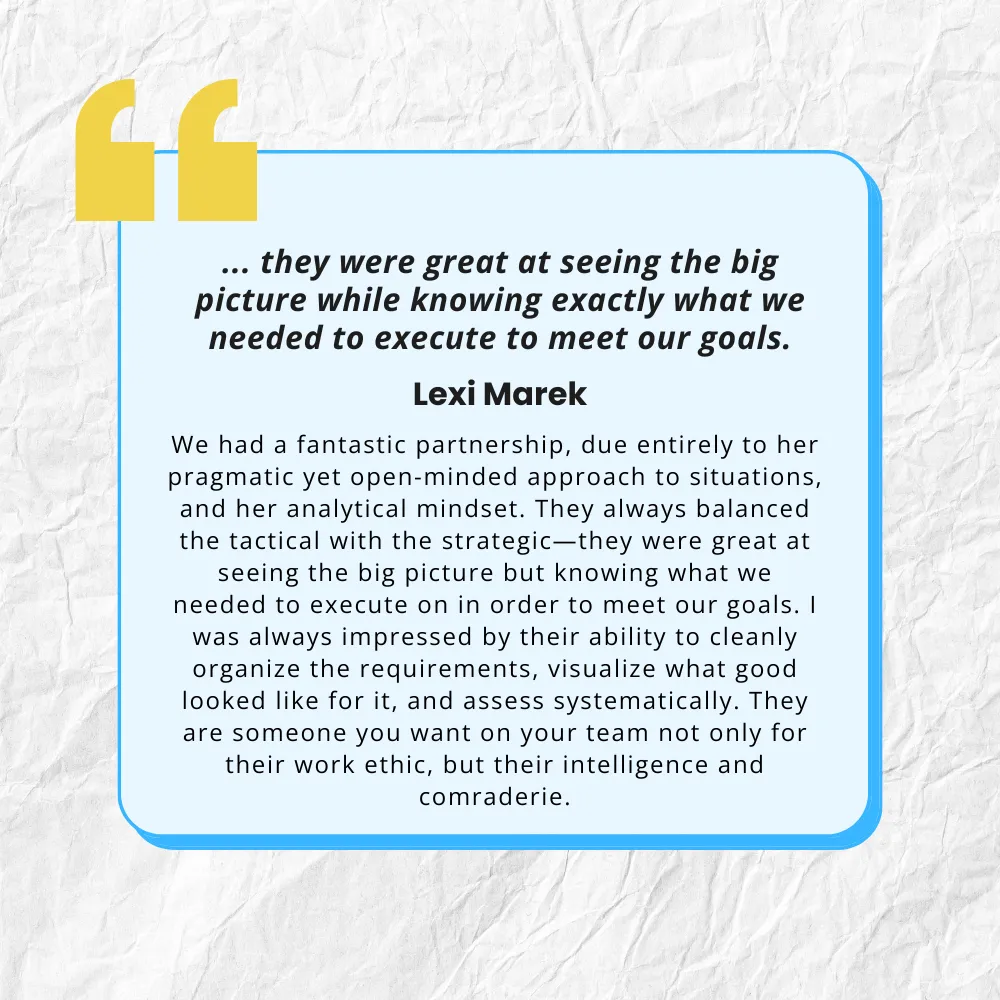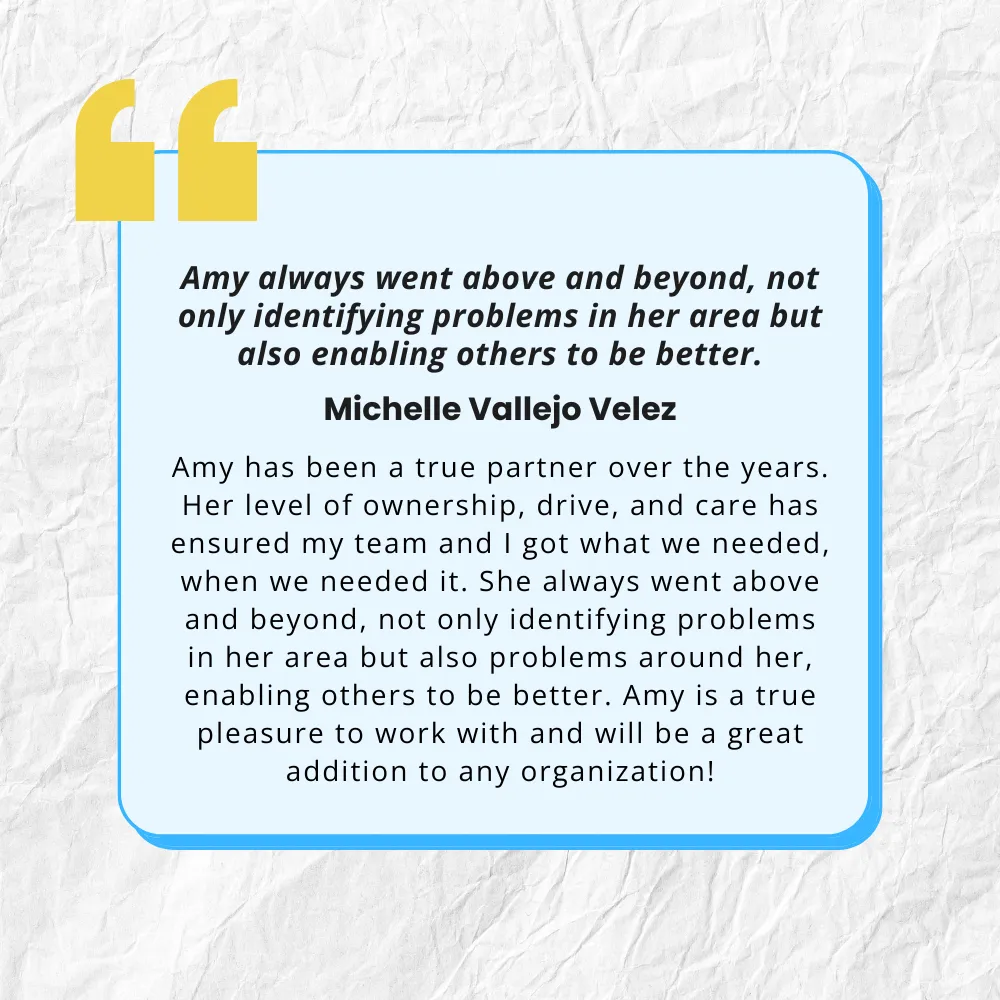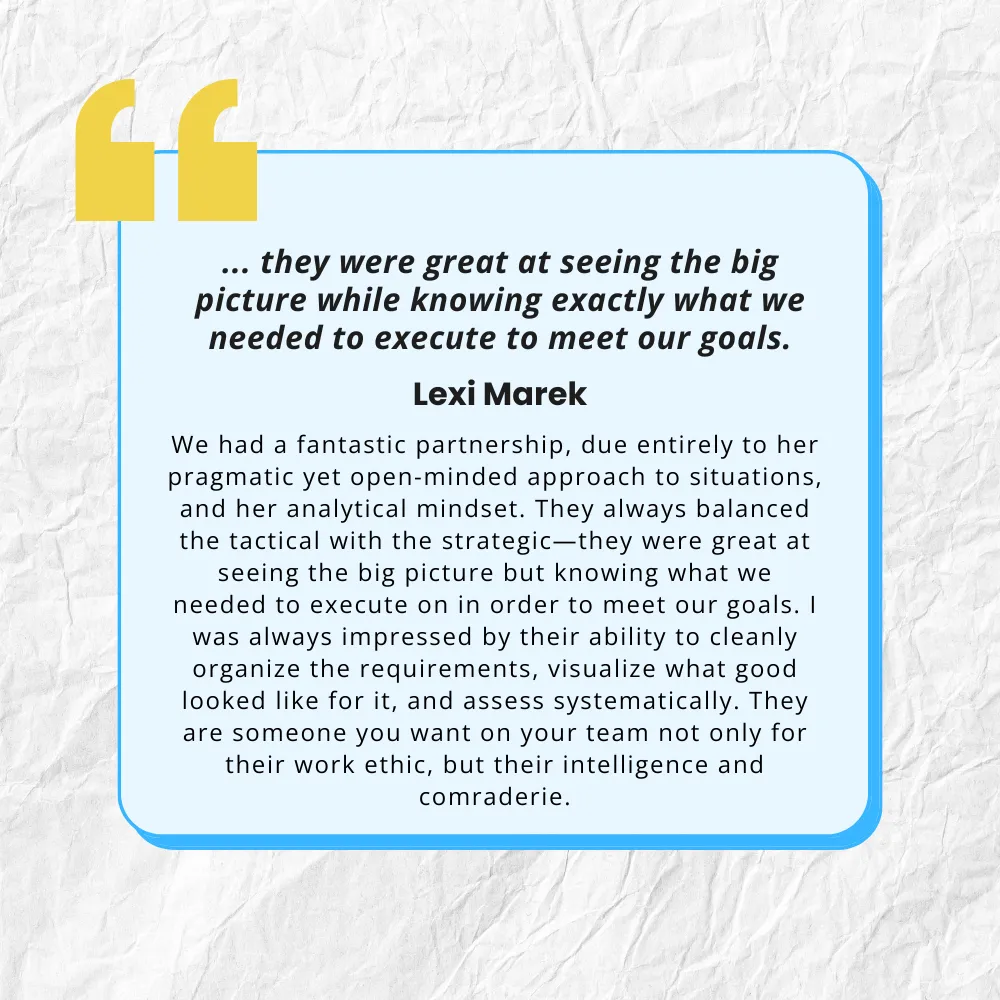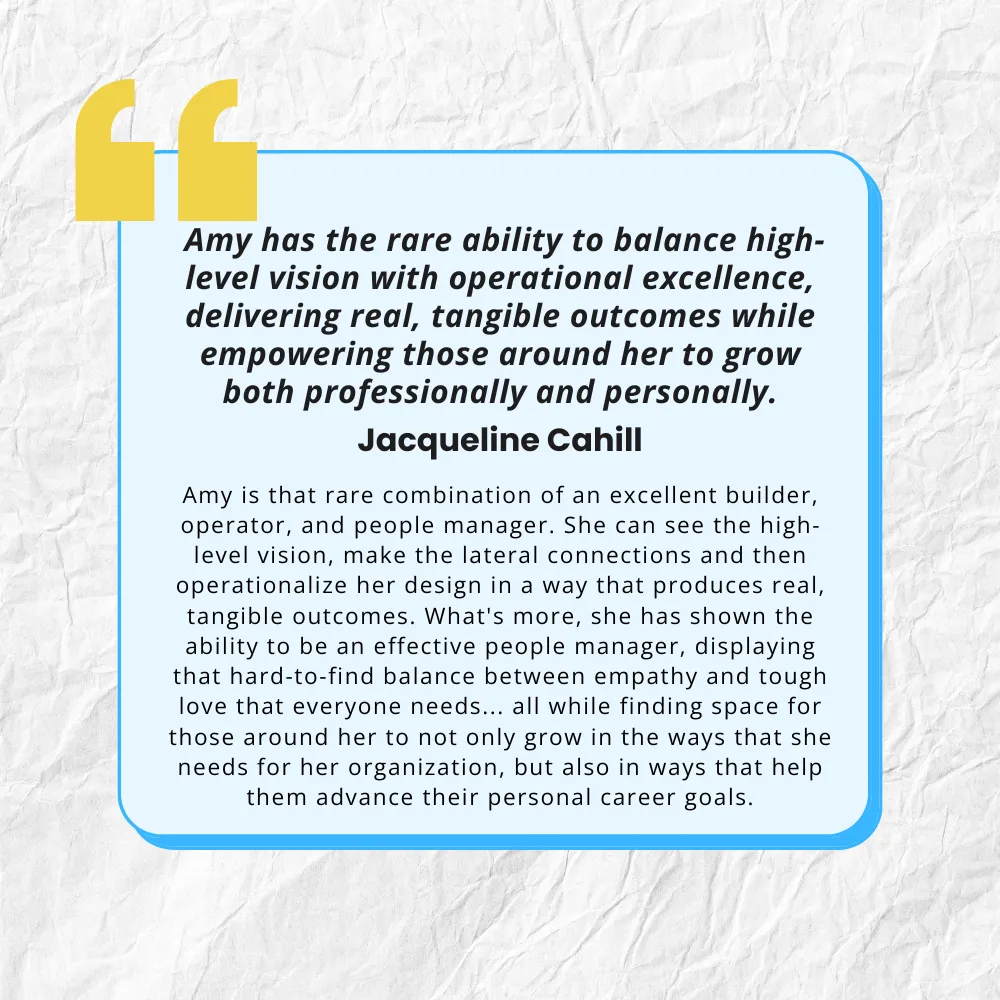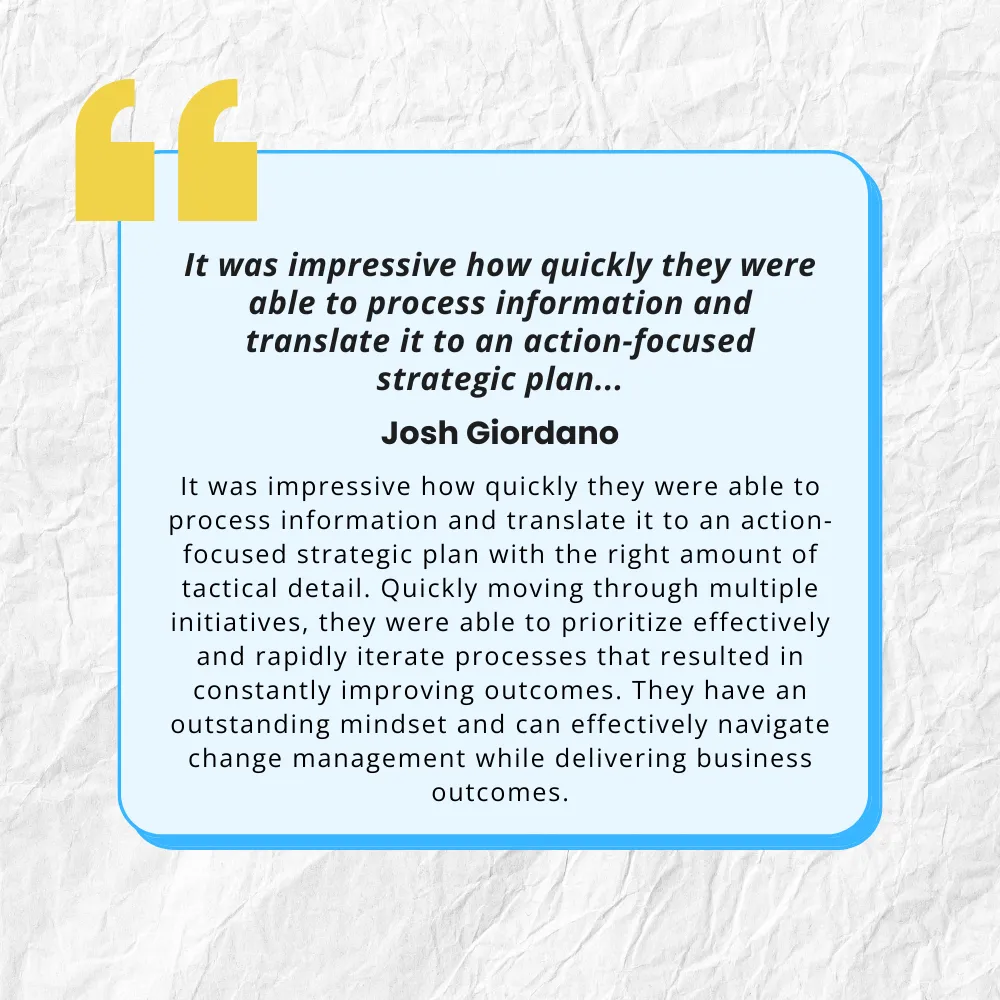Secure Funding for Your Business
Everyone wants to know—how do you win a grant? Our stress-free grant support services are here to help you snag the funding you need to grow your business and make a real impact. Forget the stress—we’ll guide you every step of the way to uncover grant opportunities that could transform your business.

Why Choose Us?
Proven Success: Our team has secured over $1,000,000 in grant funding for clients just like you since 2022.
Extensive Experience: We’ve applied to over 87 grants in 2024, giving us the expertise to maximize your chances of success.
We Only Apply Where You Stand a Chance: We don’t waste your time on unwinnable grants. We focus on opportunities where you have the highest likelihood of success, so you’re not just applying—we’re targeting the grants that truly fit.
We Take Care of Everything for You: From figuring out what’s not working to applying for grants with better odds, we’ll take the process off your hands and handle it all. You can focus on your business while we focus on securing your funding.
Scientific Approach: Our process is driven by data, research, and a systematic methodology. We don’t just write nice stories—we craft powerful applications based on what works. This rigorous, data-backed approach yields the best results and ensures your application stands out.
Dedicated Team: You’ll have a dedicated grant expert who understands your business and tailors their support to your unique needs.
Free Consultation—No Cost, No Obligation!
Not sure where to start with your project or grant application? Don’t worry, we’ve got you covered—and it won’t cost you a thing! Our grant experts are ready to provide you with a completely free, no-obligation consultation to explore how we can help you achieve your funding goals. You get expert advice without spending a penny.
Client Success Stories
Don’t just take our word for it—hear from our clients who have secured vital funding for their businesses.
Our Story: Built from Demand, Fueled by Results
We didn’t set out to build a grant writing service—our grant services were born from the overwhelming requests we received from small business owners seeking funding. After repeatedly hearing their struggles and seeing the gaps in support, we knew we had to step in.
Today, we’re a dedicated team of expert grant writers and advisors with a proven track record of securing vital funding for small businesses. Our approach is not just personal and detailed—it’s driven by a passion to deliver the results that matter most to you.
We're here because you asked for it, and we’re committed to helping you succeed.
Our Story: Built from Demand, Fueled by Results
We didn’t set out to build a grant writing service—our grant services were born from the overwhelming requests we received from small business owners seeking funding. After repeatedly hearing their struggles and seeing the gaps in support, we knew we had to step in.
Today, we’re a dedicated team of expert grant writers and advisors with a proven track record of securing vital funding for small businesses. Our approach is not just personal and detailed—it’s driven by a passion to deliver the results that matter most to you.
We're here because you asked for it, and we’re committed to helping you succeed.
Getting Started with Grants
Frequently Asked Questions
What is a grant?
A grant is a financial award or contribution provided by a government agency, foundation, corporation, or other organization to support a specific project, program, or initiative. Grants are typically non-repayable and are awarded to individuals, non-profit organizations, educational institutions, or businesses to help them carry out activities that align with the goals and objectives of the grant-making entity.
Who is eligible to apply for a grant?
Eligibility criteria for grants vary but typically depend on factors such as the type of recipient (individual, non-profit, for-profit), geographic location, project focus, and the grantor's specific requirements. Applicants should carefully review the grant guidelines provided by the grant-making organization to determine if they meet the eligibility criteria.
What will grants pay for?
Grants can pay for a wide range of expenses related to the project or program for which they are awarded. These expenses may include personnel salaries, equipment, research costs, program implementation, travel, and other project-specific costs. The grantor will specify what expenses are allowable within the grant guidelines.
Can I apply to numerous grants at the same time?
Yes, you can apply to multiple grants simultaneously. It's common for organizations and individuals to seek funding from multiple sources to support their projects or initiatives. However, it's essential to manage your applications carefully to ensure you meet all deadlines and fulfill the requirements of each grant application.
What do I do if the grant application is by invitation only?
If a grant opportunity is by invitation only, it means that the grantor has specifically invited certain organizations or individuals to apply. In such cases, you typically cannot submit an application unless you have received an invitation. It's essential to explore other grant opportunities that align with your goals if you do not receive an invitation.
What is a letter of inquiry?
A letter of inquiry (LOI) is a brief, formal letter submitted to a grant-making organization to express your interest in a particular grant program. It provides an overview of your project or initiative and seeks permission to submit a full grant application. LOIs are often used as a preliminary step in the grant application process to help grantors screen potential applicants.
How much time does it take to prepare a grant application?
The time required to prepare a grant application varies depending on the complexity of the grant, the size of the proposal, and your familiarity with the application process. It can range from a few weeks to several months. It's advisable to start the process well in advance of the grant deadline to ensure a thorough and competitive application.
What do I do if my grant application is rejected?
If your grant application is rejected, it's essential not to be discouraged. Grant rejection is common, even for highly qualified applicants. You can consider the following steps:
Seek feedback from the grantor to understand why your application was not successful.
Review and revise your proposal based on the feedback received.
Continue to search for and apply to other grant opportunities that align with your goals.
Strengthen your proposal by addressing any weaknesses identified in the rejection feedback.
Stay persistent and keep trying, as success in grant applications often comes through a combination of learning from rejection and refining your approach.
What is a non-profit organization?
A non-profit organization is a type of entity that operates for purposes other than generating a profit. Non-profits are typically formed to serve a specific mission or address a social, educational, charitable, or religious need.
What are the key steps to starting a non-profit organization?
Key steps include defining your mission, choosing a legal structure, creating a board of directors, registering with the appropriate government agencies, drafting bylaws, and applying for tax-exempt status.
Why do I need to register my non-profit with the state?
You need to register your non-profit with the state for legal recognition, compliance with state laws, access to tax exemptions, limited liability protection, donor trust, eligibility for grants, accountability through reporting, legal standing, financial transactions, credibility, and potential access to state-level benefits.
What documents are typically required for state registration?
Typically, for state registration, you'll need:
Articles of Incorporation: Legal document establishing your non-profit as a corporation.
Bylaws: Internal rules governing your organization's operation.
Registered Agent Information: Details of the agent designated to receive legal documents.
State Registration Forms: Specific forms required by your state's Secretary of State office.
Filing Fee: Payment for processing your registration application.
Additional documents and requirements can vary by state, so check your state's guidelines for precise details.
How do I find information about state registration requirements for my non-profit?
To find information about state registration requirements for your non-profit, start by visiting your state's official website, typically managed by the Secretary of State or an equivalent agency responsible for non-profit registrations. Look for a dedicated section related to non-profits or corporations, where you'll often find comprehensive registration guidelines and downloadable forms specific to your state's requirements. If you have questions or need assistance, don't hesitate to contact the state office directly; they can provide guidance and answer any queries you may have regarding the registration process. Additionally, consider consulting legal experts or online resources that specialize in non-profit registration within your state for further assistance and insights into compliance.
What is an EIN, and why does my non-profit need one?
An EIN, or Employer Identification Number, is a unique nine-digit identifier issued by the IRS. Think of it as your non-profit's social security number. Your organization needs an EIN for various critical purposes. It's essential for accurate tax reporting, including the filing of annual information returns (Form 990) with the IRS, ensuring your non-profit complies with tax regulations.
Additionally, an EIN is the key to managing your non-profit's finances effectively. It allows you to open dedicated bank accounts in your organization's name, making it easier to handle donations, grants, and other financial transactions securely. If your non-profit has employees or plans to hire staff in the future, you'll also need an EIN for payroll and employment tax purposes.
Maintaining tax-exempt status under Section 501(c)(3) of the Internal Revenue Code often requires an EIN. When applying for grants or entering into contracts and agreements, many entities will request your organization's EIN to confirm its legal and tax-exempt status.
Furthermore, donors who contribute to your non-profit often use your EIN when claiming tax deductions for their charitable contributions. Providing an EIN gives them the assurance that their contributions are eligible for tax benefits, which can encourage more significant support for your organization.
How can I obtain an EIN for my non-profit?
You can obtain an EIN (Employer Identification Number) for your non-profit organization through several methods:
Online: The most convenient method is to apply online through the IRS website. Visit the IRS website's "Apply for an Employer Identification Number (EIN) Online" page and follow the instructions to complete the online application.
Fax: You can download Form SS-4, the Application for Employer Identification Number, from the IRS website. Once filled out, you can fax it to the appropriate fax number for your state. Fax numbers are listed in the Form SS-4 instructions.
Mail: Similarly, you can download Form SS-4 from the IRS website, complete it, and mail it to the appropriate address for your state as indicated in the instructions. This process takes longer than the online or fax methods.
Phone: If you're located in the United States or its territories, you can apply for an EIN by calling the IRS Business and Specialty Tax Line at 1-800-829-4933. The hours of operation are typically limited, so check the IRS website for current information.
When applying for an EIN, you'll be asked to provide information about your non-profit, such as its legal name, mailing address, the name and contact information of a responsible party, and details about your organization's structure and activities. Filing your EIN is free of charge.
What is tax-exempt status, and how do I obtain it for my non-profit?
Tax-exempt status for a non-profit means the organization is exempt from paying certain federal and state taxes, and donors can typically deduct their contributions from their taxable income. To obtain tax-exempt status for your non-profit, you generally need to apply to the IRS by filing Form 1023 or Form 1023-EZ, depending on your organization's size and eligibility. Once approved, your non-profit can operate as a tax-exempt entity under the designated category, typically 501(c)(3) for charitable organizations.
What are the eligibility requirements for 501(c)(3) status?
To be eligible for 501(c)(3) tax-exempt status under the Internal Revenue Code, an organization must meet several key requirements:
Organizational Purpose: The organization must be organized and operated exclusively for one or more of the following purposes:
Religious
Charitable
Scientific
Testing for public safety
Literary
Educational
Fostering national or international amateur sports competition
Preventing cruelty to children or animals
No Private Inurement: None of the organization's earnings or assets may benefit any private individual or shareholder. It must operate for the public's benefit, and any income should be used to further its exempt purpose.
No Substantial Political Activity: The organization's involvement in political activities, such as lobbying or supporting political candidates, should be limited to a small portion of its overall activities. The primary focus must remain on its exempt purpose.
Limitations on Activities: A 501(c)(3) organization must not engage in activities that are illegal or contrary to public policy. Additionally, it must not engage in excessive unrelated business activities that generate income unrelated to its exempt purpose.
Restrictions on Assets Upon Dissolution: In the event the organization dissolves, its assets must be distributed for tax-exempt purposes, such as to another 501(c)(3) organization or for a charitable purpose, rather than to individuals or private shareholders.
Compliance with Recordkeeping and Reporting: The organization must maintain proper records and comply with annual reporting requirements, including filing an annual information return (Form 990) with the IRS.
No Substantial Benefit to Private Interests: The organization cannot provide excessive financial benefits to its officers, directors, or insiders. Compensation must be reasonable and based on industry standards.
Public Support Test: Some 501(c)(3) organizations, particularly public charities, must demonstrate a broad base of financial support from the public rather than relying primarily on a limited number of donors.
It's important to note that these eligibility requirements may have additional nuances and may vary depending on the specific type of 501(c)(3) organization (e.g., public charity, private foundation).
What is GuideStar, and why should my non-profit be listed there?
GuideStar is a prominent online platform that provides information about non-profit organizations. Listing your non-profit on GuideStar is beneficial because it increases your organization's visibility and transparency. Many donors, grantors, and stakeholders use GuideStar to research and assess non-profits, making it an essential tool for demonstrating your organization's credibility, mission, financials, and impact. Listing on GuideStar can enhance donor trust and facilitate fundraising efforts by providing easy access to key information about your non-profit.
What is sam.gov, and when do non-profits need to register there?
SAM.gov, or the System for Award Management, is a U.S. government website that serves as a central registry for organizations and individuals that do business with or receive grants and contracts from the federal government. Non-profits may need to register on SAM.gov under the following circumstances:
Federal Grants and Contracts: If your non-profit intends to apply for federal grants or contracts, you will typically need to register on SAM.gov. Many federal agencies require SAM registration as a prerequisite for awarding grants or contracts.
Subawards: If your non-profit is a subrecipient or subcontractor in a federally funded project (e.g., as part of a grant received by another organization), you may need to register on SAM.gov, especially if the primary recipient requires it.
Federal Assistance: Some federal assistance programs may require SAM registration even if your non-profit is not directly receiving grants or contracts. This requirement ensures compliance with federal regulations.
Reporting and Compliance: SAM.gov also serves as a platform for organizations to update their entity information, complete required representations and certifications, and report data related to federal awards and contracts.
Procurement: If your non-profit engages in procurement or business activities with the federal government, SAM registration may be necessary to facilitate these transactions.
Please note that registration on SAM.gov can be a detailed process, and it may require periodic updates to maintain accuracy. Additionally, requirements may change over time, so it's essential to check the latest guidance on the SAM.gov website and consult with federal agencies or grantors to ensure compliance with their specific registration requirements.
What is the role of the Board of Directors in a nonprofit?
The Board of Directors in a nonprofit plays a critical role in governance, decision-making, and overseeing the organization's mission and operations. They provide leadership, set strategic direction, ensure financial stewardship, hire and oversee executive leadership, and uphold the organization's values and legal obligations.
How should I form a Board of Directors for my nonprofit?
To form a Board of Directors for your nonprofit, begin by identifying individuals who bring diverse skills, expertise, and a genuine commitment to your organization's mission. Clearly define the roles and responsibilities of board members to ensure alignment with your nonprofit's objectives.
What are nonprofit by-laws, and why are they important?
Nonprofit by-laws are internal rules that outline the organization's structure, governance, and operational procedures. They are important because they provide clarity on roles, decision-making, and accountability within the organization, ensuring it operates efficiently and transparently while adhering to legal requirements.
How can I draft by-laws for my nonprofit?
To draft by-laws for your nonprofit, begin by defining the organization's structure, outlining the roles and responsibilities of board members, officers, and committees. Specify decision-making processes, including voting procedures and quorum requirements, and establish guidelines for amending the by-laws in the future. Prioritize transparency and accountability by including provisions for financial oversight, audits, and the management of conflicts of interest. Ensure your by-laws align with state and federal laws governing nonprofits. It's often beneficial to seek legal expertise or use templates designed for nonprofits to create comprehensive and compliant by-laws. Engage stakeholders in the drafting process to ensure that the by-laws reflect the organization's specific needs and goals.
What is a nonprofit’s Conflict of Interest Policy, and why is it important for nonprofits?
To draft by-laws for your nonprofit, begin by defining the organization's structure, outlining the roles and responsibilities of board members, officers, and committees. Specify decision-making processes, including voting procedures and quorum requirements, and establish guidelines for amending the by-laws in the future. Prioritize transparency and accountability by including provisions for financial oversight, audits, and the management of conflicts of interest. Ensure your by-laws align with state and federal laws governing nonprofits. It's often beneficial to seek legal expertise or use templates designed for nonprofits to create comprehensive and compliant by-laws. Engage stakeholders in the drafting process to ensure that the by-laws reflect the organization's specific needs and goals.
What is a Non-Discrimination Policy, and why is it important for nonprofits?
A Non-Discrimination Policy is a statement or set of guidelines that outlines a nonprofit organization's commitment to treating all individuals equally and without prejudice, regardless of race, gender, religion, age, disability, or other protected characteristics. It is vital for nonprofits as it ensures that the organization operates ethically, promotes inclusivity, and adheres to anti-discrimination laws. This policy helps create a welcoming and diverse environment, fosters trust with stakeholders, and ensures fair and equitable treatment for all individuals served by or associated with the nonprofit.
What is the role of a nonprofit's mission and vision in grant applications?
A nonprofit's mission and vision statements play a crucial role in grant applications. The mission statement defines the organization's purpose and guides its activities, ensuring alignment between the grant proposal and the nonprofit's overall goals. The vision statement provides a future-oriented perspective, showcasing the nonprofit's aspirations and long-term impact. Including these statements in a grant application helps grantors understand the nonprofit's core values, objectives, and the context in which their funding will be used, which can enhance the application's relevance and alignment with the grantor's mission.
How should I define clear and measurable goals in my grant proposal?
A nonprofit's mission and vision statements play a crucial role in grant applications. The mission statement defines the organization's purpose and guides its activities, ensuring alignment between the grant proposal and the nonprofit's overall goals. The vision statement provides a future-oriented perspective, showcasing the nonprofit's aspirations and long-term impact. Including these statements in a grant application helps grantors understand the nonprofit's core values, objectives, and the context in which their funding will be used, which can enhance the application's relevance and alignment with the grantor's mission.
What is impact measurement, and why is it important for grant applications?
Impact measurement is the process of assessing and quantifying the outcomes and effectiveness of a nonprofit's programs or initiatives. It's important for grant applications because it provides evidence of your nonprofit's ability to create positive change and meet its stated objectives. Impact measurement demonstrates accountability, transparency, and the ability to make data-informed decisions. It also helps grantors understand the tangible and meaningful results their funding can achieve, increasing confidence in your nonprofit's capacity to deliver on its promises and fulfill the grant's objectives.
How do I describe my nonprofit's programs and activities in a grant proposal?
To describe your nonprofit's programs and activities effectively in a grant proposal:
Clarity: Provide a clear and concise overview of your programs, including their names and primary purposes.
Objectives: Outline the specific objectives of each program and what you aim to achieve. Use action verbs like "educate," "serve," or "empower."
Activities: Describe the key activities and strategies you will implement to reach your objectives. Be detailed but focus on the most critical aspects.
Timeline: Include a timeline or schedule that outlines when each activity will take place and the expected duration.
Expected Outcomes: Explain the anticipated outcomes or results of your activities, linking them to your overall goals.
Alignment: Emphasize how your programs align with the grant's goals and objectives, demonstrating a strong fit between your organization's work and the grantor's mission.
Impact: Discuss the expected impact of your programs on the community or beneficiaries, highlighting how the grant will contribute to this impact.
Budget: Include a budget section specifically related to the programs and activities, demonstrating how the grant funds will be allocated.
Narrative: Weave all this information into a compelling narrative that tells the story of how your programs will address the identified need or problem and create positive change.
Remember to be concise, focused, and clear in your descriptions, ensuring that grant reviewers can easily understand the significance and effectiveness of your nonprofit's programs and activities.
What is a Statement of Need in a grant proposal?
A Statement of Need in a grant proposal is a section that outlines the problem or issue your nonprofit intends to address with the grant funds. It provides essential context and evidence to demonstrate why your project or program is necessary. This statement should clearly articulate the need, its significance, and the specific community or population affected. It helps grantors understand the rationale behind your proposal and why their funding is essential to address the identified need effectively. A well-crafted Statement of Need is a persuasive component of your grant application, setting the stage for the rest of your proposal.
How can I make the Statement of Need compelling to grant reviewers?
To make the Statement of Need compelling to grant reviewers, ensure it's specific and data-driven, utilizing facts, figures, and statistics to underscore the problem's magnitude. Employ persuasive storytelling to humanize the issue and evoke empathy. Emphasize urgency by explaining the immediate and future consequences of not addressing the need. Show a clear link between the issue and your nonprofit's mission, highlighting your organization's expertise. Use credible sources, research, and expert opinions to support your claims. Tailor the statement to resonate with the grantor's values and objectives, making a strong case for why their support is crucial in addressing the need effectively.
What is an Op-Ed, and how can it support my nonprofit's grant applications?
To make the Statement of Need compelling to grant reviewers, ensure it's specific and data-driven, utilizing facts, figures, and statistics to underscore the problem's magnitude. Employ persuasive storytelling to humanize the issue and evoke empathy. Emphasize urgency by explaining the immediate and future consequences of not addressing the need. Show a clear link between the issue and your nonprofit's mission, highlighting your organization's expertise. Use credible sources, research, and expert opinions to support your claims. Tailor the statement to resonate with the grantor's values and objectives, making a strong case for why their support is crucial in addressing the need effectively.
Why is a budget sheet important in a grant application?
A budget sheet is essential in a grant application because it provides a detailed financial plan for the project or program you're proposing. It demonstrates fiscal responsibility and accountability to grantors by showing how their funds will be allocated. A well-structured budget sheet itemizes expenses and income sources, ensuring transparency and clarity about how the grant funds will be used to achieve your objectives. It helps grantors evaluate the feasibility and sustainability of your project, ensuring that their investment aligns with your nonprofit's goals and the desired outcomes.
What should be included in a nonprofit's budget sheet?
A nonprofit's budget sheet should include detailed income sources related to the project, encompassing the grant amount, donations, earned income, and other funding streams. It should also itemize anticipated expenses directly linked to the project, such as personnel costs, program-related expenses, administrative overhead, supplies, equipment, and any potential indirect costs. Additionally, salaries and wages for project staff, their roles, and hours should be specified. If applicable, in-kind contributions should be noted, including their value and source, and any required matching funds should be detailed. A contingency or reserve fund to account for unforeseen expenses or project adjustments should be included. Summarize all income and expenses to calculate the total project cost, ensuring it aligns with the grant amount, and provide a brief narrative explanation that justifies costs and demonstrates how grant funds will be utilized effectively. This comprehensive budget sheet promotes transparency and financial accountability, assuring grantors that their funding will be used prudently to achieve project goals.
What are letters of support, and how can they help my nonprofit secure grants?
Letters of support are endorsements from individuals or organizations that endorse your nonprofit's project in grant applications. They validate your project's importance, enhance credibility, showcase community engagement, and advocate for your nonprofit's work. These letters offer persuasive evidence of your project's value and can significantly bolster your grant application, making it more competitive. To make the most of them, choose endorsers who genuinely connect with your project, ensure the letters are well-written and personalized, and emphasize how your work benefits the community and aligns with grantor objectives.
How can I search for grants for my organization or project?
You can find grants through several sources and methods:
Online Grant Databases: Websites like Grants.gov, Foundation Center, GrantWatch, and Candid (formerly GuideStar) maintain extensive databases of grants from government agencies, foundations, and corporations.
Foundation Websites: Explore the websites of foundations, especially those with a mission aligned to your organization. Many foundations list their grant opportunities and application guidelines online.
Government Agencies: Government grant opportunities can be found on government agency websites at the federal, state, and local levels.
Corporate Giving Programs: Investigate the philanthropic arms of large corporations. Their websites often feature information on grant opportunities and corporate giving initiatives.
Nonprofit Associations: Join or consult nonprofit associations relevant to your field or region. They may offer grant listings or grant-seeking resources.
Grant Newsletters: Subscribe to newsletters that curate grant opportunities and send them directly to your inbox.
Networking: Attend conferences, workshops, and networking events within the nonprofit sector. Networking can lead to grant opportunities and valuable connections.
Grant Consultants and Professionals: Consider hiring grant consultants or professionals who specialize in grant prospecting and proposal writing. They can help identify suitable grants for your organization.
Local and Regional Sources: Investigate local community foundations, city or county grant programs, and regional grantmaking entities that support initiatives in your area.
Online Search Engines: Use search engines with specific keywords related to your nonprofit's mission and the type of grant you're seeking. This can uncover additional grant opportunities.
Where can I find grant opportunities for nonprofit organizations?
Grant opportunities for nonprofit organizations are commonly available on the websites of foundations, government agencies, and corporate philanthropy programs. You can also use specialized grant search platforms, consult with grant-seeking professionals, or explore grant directories.
What should I consider when identifying relevant grants for my project?
When identifying grants, consider factors such as the alignment between your project and the grantor's mission and priorities, eligibility criteria, geographic focus, grant size, application deadlines, and reporting requirements. Choose grants that best fit your project's goals and needs.
How do I prepare a successful grant proposal?
To prepare a successful grant proposal, thoroughly research the grant guidelines, follow the application instructions carefully, clearly articulate your project's objectives and impact, provide a compelling narrative, present a detailed budget, and emphasize the alignment between your project and the grantor's mission.
What are some strategies to increase the chances of securing funding?
Strategies to increase funding success include building strong relationships with potential donors and grantors, sending sponsorship letters, demonstrating a clear and compelling case for support, emphasizing your organization's track record and impact, cultivating a diverse funding portfolio, and regularly engaging with donors through stewardship and reporting.
What role does storytelling play in securing funding?
Storytelling is crucial in securing funding as it helps you create an emotional connection with funders. By sharing impactful stories that illustrate the difference their support can make, you can engage their hearts and minds, making them more likely to invest in your cause.
How can I stay informed about new grant opportunities and funding trends?
To stay informed, regularly monitor grant databases, subscribe to grant newsletters, follow social media accounts and blogs related to fundraising and grants, attend conferences and webinars, and network with professionals in the nonprofit and philanthropic sectors.

COMPANY
LEGAL
CONNECT WITH US
CONNECT WITH US
Copyrights 2024. 418 Broadway STE N, Albany NY 12207. All Rights Reserved.




